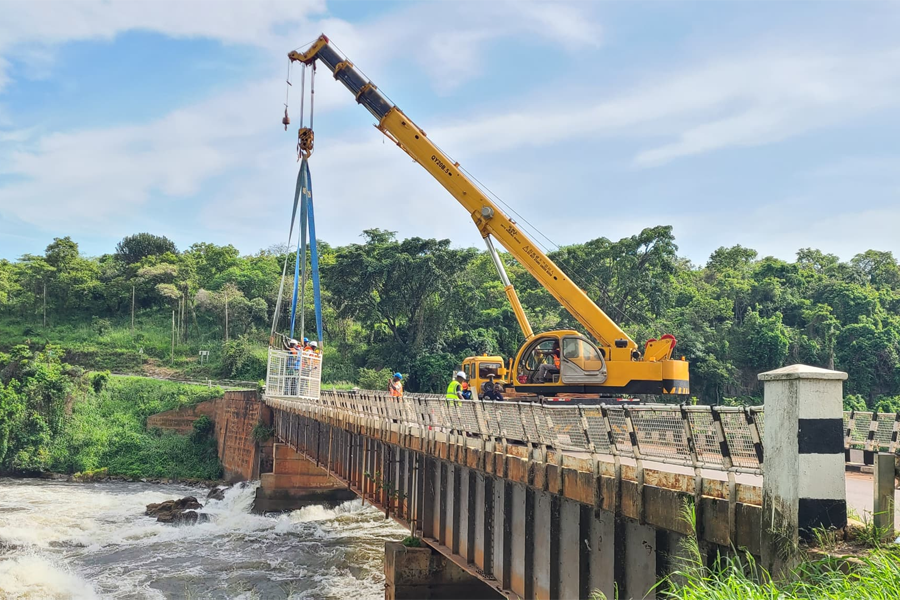The Japanese government has stepped up to support Uganda's efforts to replace the aging Karuma Bridge.
The government has been looking for funding to construct a cable bridge similar to the New River Nile Bridge in Jinja over the Karuma Falls to replace the stricken structure.
But the funding, estimated in billions of shillings, has been holding the plans back even as the old bridge had to be closed down to traffic to enable an overhaul of the defective bridge.
A high-level Japanese delegation, led by JICA (Japan International Cooperation Agency) senior vice president Ando Naoki, on Thursday held meetings with Ugandan officials to fast-track the construction of the new Karuma Bridge.
The ambitious project is valued at Shs550 billion ($150 million).
The Karuma Bridge, located on the Kampala-Gulu highway, serves as a crucial link between southern and northern Uganda.
With 20% of Uganda’s exports going to South Sudan and 15% to the Democratic Republic of Congo, the bridge that was constructed in 1963 with a lifestpan of 50 years plays a pivotal role in regional trade.
However, the current structure struggles to handle modern traffic loads and has become prone to accidents due to its narrow lanes and sharp bends.
The new bridge is projected to improve safety and efficiency, potentially reducing travel times by 40% and increasing economic activity across the region.
Fred Byamukama, Uganda’s Minister of State for Transport, highlighted Japan's longstanding support for the country's transport infrastructure.
“The construction of the new Karuma Bridge will not only replace an aging structure but will also ensure safer travel for our citizens,” Byamukama said.
The new bridge is expected to increase Uganda’s trade with neighbouring countries, particularly South Sudan and DR Congo.
Projections suggest that exports to South Sudan could rise by 25%, while exports to the DRC may increase by 20% after the bridge's completion.
Enhanced transport infrastructure is key to lowering logistics costs, which could drop by 15-20%.
One of the standout features of the new Karuma Bridge will be its elevated design, allowing it to handle heavier traffic and larger vehicles, significantly improving road safety.
The new structure aims to eliminate the risks posed by the sharp curves on the current bridge.
During the discussions, other JICA-funded projects were also reviewed, including new bridges across the River Nile at Jinja, upgrades to the Atiak-Nimule road, and Phase 2 of the Kampala Flyover Construction and Road Upgrading Project.
Additionally, there were talks on traffic control initiatives and improving road infrastructure in refugee-hosting areas in the West Nile sub-region and Gulu municipality.
Byamukama emphasized the importance of these collaborations.
“We discussed an array of JICA-funded projects, including financing Phase 2 of the Kampala Flyover Project and securing equipment for road maintenance. These agreements need to be concluded by teams from both governments,” he stated.
The cooperation between Japan and Uganda represents a broader commitment to sustainable development through infrastructure improvements.
The new Karuma Bridge is not just a replacement—it is set to pave the way for safer travel, reduced transportation times, and enhanced regional trade and cooperation in East Africa.
“With the commitment from both governments and JICA's expertise, the future of Uganda's infrastructure looks promising. The anticipation surrounding the Karuma Bridge underscores the importance of timely execution and community engagement, setting the stage for transformative economic growth,” Byamukama concluded.


